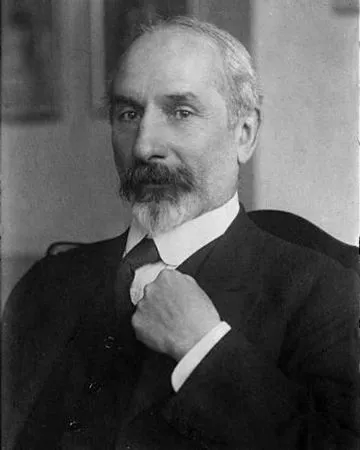
Sydney Olivier (16 April 1859 – 15 February 1943) was a prominent British politician and public servant in the late 19th and early 20th centuries. He was known for his progressive views on social justice and his work in promoting social reform. Olivier played a role in the development of the British welfare state and was instrumental in the creation of the first Labour Party government.
Olivier was born in Colchester, the second of eight children of Anne Elizabeth Hardcastle Arnould and the Reverend Henry Arnold Olivier, a stern Anglican. Olivier was educated at Oxford University and later went on to study law. He was called to the bar in 1883 and practiced as a barrister for several years before entering politics.
In 1908, Olivier was appointed as a member of the Royal Commission on the Poor Laws and Relief of Distress. The commission was tasked with examining the British poor laws and making recommendations for reform. Olivier was a strong advocate for the establishment of a national system of social insurance, which would provide financial support to people who were unable to work due to illness, injury, or unemployment.
Olivier’s advocacy for social insurance was reflected in the National Insurance Act of 1911, which established a system of insurance for workers in certain industries. The act provided financial support to workers who were unable to work due to illness or injury and also provided support to the families of deceased workers. The act was a significant milestone in the development of the British welfare state and helped to establish the principle of social insurance as a means of providing financial support to those in need.
In 1914, Olivier was appointed as the first director of the newly created Ministry of Labour. The ministry was responsible for overseeing labour relations and employment policy in Britain. Olivier was a strong advocate for the rights of workers and worked to improve working conditions and wages for working-class people. He also played a key role in negotiating wage agreements between employers and workers and helped to prevent strikes and labour unrest.
Olivier’s commitment to social justice was reflected in his personal life as well. He was a vegetarian and a teetotaler and was known for his support of progressive causes. He was also a supporter of women’s suffrage and worked closely with leading suffragettes such as Emmeline Pankhurst. Olivier believed that social change could only be achieved through political action and he devoted his life to public service and the pursuit of social reform.
Olivier was a founding member of the Labour Party and played a key role in the party’s development. He was also a prolific writer and wrote several books on politics and social reform.
Olivier died in 1943 at the age of 84. His legacy as a champion of social justice and a pioneer of the British welfare state is still felt today. His advocacy for social insurance and his work in promoting labour rights and improving working conditions helped to lay the groundwork for the modern welfare state, and his commitment to political action and social reform continue to inspire.